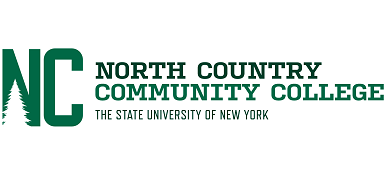Maintaining A Drug-Free Workplace
Each College employee (including student employees) as well as those newly hired at the time of their orientation, will be notified of the NCCC Drug and Alcohol Abuse Prevention Program Plan with emphasis on the obligation for compliance as a condition of employment.
Any College employee convicted of a criminal drug statute violation which has occurred
in or on College owned or operated premises or vehicles shall provide his or her appropriate
Dean or the President notification, preferably written, of such conviction, including
any resultant conditions, within five (5) days of conviction. Student employees shall
notify the Dean of Student Affairs.
Disciplinary Sanctions: Student and Employee:
All members of the College community should read the full text of the NCCC Code of Conduct - Individual Rights and Responsibilities as approved by the NCCC Board of Trustees for detailed information including time guidelines. What follows is a summary of disciplinary action if a student violates NCCC’s policy on drug and alcohol use and abuse.
1. All charges must be detailed and submitted in writing to the Office of the appropriate Dean by the individual(s) initiating such charges.
2. The individual believed to be in violation of the NCCC Drug and Alcohol Abuse Prevention Plan will be notified by registered letter of the charges, when they should appear for a consultation meeting, and their right to a hearing.
3. At the above-mentioned consultation meeting the student, employee or student employee will be advised of his/her rights in the proceedings and any possible consequences stemming from the allegations. Students will have all charges reviewed.
4. Sanctions imposed, if any, will be in accordance with the provisions of the NCCC Code of Conduct - Statement of Rights and Responsibilities.
There are local, state and federal laws prohibiting the unlawful possession or distribution of illicit drugs and alcohol. New York law offers penalties ranging from 15 days to life in prison and up to $3 million in fines. Penalties are based upon the amount of substance involved, the nature of the offense, and the number of prior offenses.
Each of our campus communities has an “open container” law. Local ordinance #3-1 in Saranac Lake, for instance prohibits possession of any alcoholic beverage in an unsealed container on public streets or park property within the village.
Resources: College and Community:
North Country Community College has a goal of educating its students to be productive
in their personal lives and career choices. The College also seeks to foster this
same goal for its employees. Since drug and alcohol abuse is nationally recognized
as the major cause of diminished productivity, NCCC is committed to assisting students
and employees in obtaining education and, when necessary, treatment in this area.
To this end the following resources are offered:
Throughout the academic year the College, through the Student Affairs Department, offers seminars, lectures and films for the general campus community regarding issues associated with drug and alcohol use. Brochures and pamphlets which address the psychological and health issues connected with specific drugs are located in several areas on each campus. The counseling offices and the LRC have a broad spectrum of educational materials available to faculty, staff and students.
Counseling
The counseling staff at NCCC offers short term counseling for students on drug and alcohol related issues. The focus of the counseling will be education and assessment. Counselors, when necessary, will make an appropriate referral. The student assumes responsibility for the cost of any medical or psychological services provided by private physicians, psychologists or medical/psychiatric facilities. It is the responsibility of the student to ascertain which treatments are covered under their health insurance coverage.
In addition to individual counseling, a variety of support groups are offered in each community or area where NCCC campuses are located.
Employees seeking counseling for drug and alcohol issues will need to contact service providers in the community. The counseling office can provide a list of social services providers and 12-step support groups such as AA, Al-Anon, and Adult Children of Alcoholics. The employee health insurance may cover part or all treatment for the patient and the patient’s family. In cases where the employee’s health insurances does not pay the full amount of services, the employee will assume responsibility for all remaining costs.
Drug and alcohol information is incorporated into a wide variety of courses at NCCC.
Essex County
Substance Abuse Prevention Team: 585-7424
Elizabethtown 873-9144
St. Joseph’s Rehabilitation Center: 891-3950
Saranac Lake 891-5353
Malone 483-6566
Tupper Lake 359-9627
Malone 483-8980
Saranac Lake 891-2467
A. The use of tobacco products by any member of the College community, including guests in any building owned, operated, or controlled by the College is prohibited, and all such buildings are to be designated tobacco free;
H. Non-compliance with this policy will be handled in accordance with the provisions set forth in the North Country Community College Code of Conduct – Individual Rights and Responsibilities.
View the Drug Related Risk Table
ADOPTED: August 29, 2005
